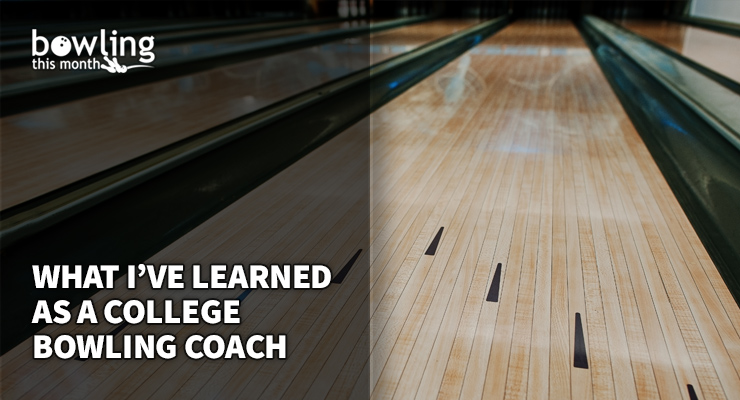Article Contents
- 1. The physical game
- 2. Technical and tactical elements
- 3. The mental game
- 4. The challenges of being a bowler and a coach
Note: This article is only available to Bowling This Month subscribers.
Over the years, I’ve had the opportunity to be a coach at various levels in athletics. I’ve been a strength and conditioning coach in the weight room for middle school, high school, collegiate, and professional athletes. I have also served as an assistant coach and head coach at three different college bowling programs, including the one I currently coach at, Hobart and William Smith Colleges, which is a Division III NCAA bowling program.
Coaching in all of these environments has taught me just as many lessons as I have taught my student-athletes. With the success of many women on the PWBA Tour who are also coaches—such as Shannon O’Keefe, Josie Barnes, and Lauren Russo, just to name a few—there is no doubt in my mind that being a coach can also lead to becoming a better competitor and athlete on the lanes.
We know that individuals can have different learning preferences, ranging from visual to auditory to kinesthetic. I am a firm believer that each of these learning styles is magnified when you teach the concepts and principles of a sport to others. When stepping into the role of a coach and teaching bowlers the physical, technical, tactical, and mental aspects of the game, your own bowling game can also reap benefits.
Here are some of the key lessons that coaching has taught me personally over the years that I’ve used to improve my own bowling.
The physical game
Coaching the physical game can definitely help you make changes to your own physical game. When I am helping a bowler with their physical game, we often examine videos in slow motion and go over various drills to break down their footwork, timing, armswing, or release. When I’m teaching drills, I’m also reminded to do these drills myself to keep the foundations of my game solid.
Recently, when Josie Barnes captured the 2025 USBC Queens crown, she mentioned in an interview that she would never tell her student-athletes at Vanderbilt University to do something she wouldn’t do herself. The best coaches often use themselves as guinea pigs, experimenting with new ...
Already a premium member? Click here to log in.


